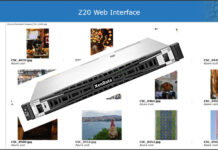Coincidence? We think not. Sysdig, a container software intelligence startup, followed up its new CEO hire with a $68.5m D-round of funding, taking total cash raised to a tasty $121.5m.
Sysdig’s funding progress has been rapid, with $10.7m in 2015, $15m in 2916, $25m in 29017 and now this $68.5m booster shot. The company was founded in 2013 with $2.3m seed funding.
What’s the big container intelligence deal? It has open-source software for admins and developers to have container troubleshooting, visibility and security information. It works with Docker, Kubernetes, Mesos and Swarm. A Sysdig Secure product provides run-time security and forensics for Docker, Kubernetes, OpenShift, Amazon ECS, and other containerized environments.
Sysdig doesn’t say what it will do with the cash beyond issuing a market quote about extending “its leadership in enabling enterprises to operate reliable and secure containerized infrastructure and cloud-native applications.” Yeah, yeah.
Containers and DevOps are big news. Sysdig quotes 451 Research predicting the cloud-enabling technology market to grow to $39.6bn through 2020, and containers are predicted to be the fastest growing segment of that market at 40 per cent. Gartner predicts that “by 2020, more than 50 per cent of global organizations will be running containerized applications in production, up from less than 20 per cent today.”
+Comment
Sysdig is sitting pretty with a cloud-native technology for dealing with cloud-native monitoring and security problems. It just (1) has to keep up with the market, viz active users of the Sysdig SaaS offerings have grown nearly six times year over year and downloads of Sysdig’s Falco security tech have roughly tripled over the last 12 months.
Keep up the product development rate; keep up the marketing and go-to-market activities, build out its business infrastructure, and containerised riches could come Sysdig’s way
Burlywood
Flash storage controller tech startup Burlywood has gained $10.6m in A-round funding. Customers can use its modular TrueFlash software technology to build customised flash controllers suiting their particular needs.
Burlywood’s initial startup and launch financing was funded primarily by Angel investors.
It says the money raised will drive strategic-growth initiatives, accelerate go-to-market activities and support the progression of its TrueFlash software towards mass production.
The round was led by Michael Jones and John Scarano, responsible for the deployment of Level 3’s original network, with participation from Acadia Woods Partners. Michael Jones founded (i) Structure which was purchased by Infocrossing and subsequently WIPRO.
A Jones quote said the vast majority of the round came from individual investors; “Raising this amount of capital from individuals is quite an accomplishment and is a testament to Burlywood’s approach to re-inventing flash and accelerating business transition to the all-flash data centre.”
He argues that; “Burlywood’s TrueFlash technology is going to be disruptive to the storage industry by improving the ROI of flash adoption. They will do this by delivering meaningful cost reduction, increased performance and application-specific functionality.”
+Comment
Will mainstream enterprises really write their own storage controller firmware? Don’t think so. The high-end ones would be more willing to entertain the idea though.
HyperGrid
The pivoted hyper-converged infrastructure appliance vendor, HyperGrid, has been given a slug of cash too; $25m in a C-round, co-led by new investor, HighBar Partners and current investor Atlantic Bridge Capital, and participated in by current investors Acero Capital. The cash raise is accompanied by news of the company’s SaaS HyperCloud product being listed on the AWS Marketplace.
HyperCloud, we’re told, is an intelligent and comprehensive cloud management platform that enables enterprises and MSPs to automate operations across multiple private and public clouds, and optimize workload deployments by picking the best cloud option for their budget and performance needs.
The company will use the cash to boost sales into the enterprise and MSP markets in the USA, expand its presence in EMEA and APAC, and continue product development. It said it’s had a year-over-year increase in revenue of 300 per cent across its enterprise and MSP customer base.
+Comment
HyperCloud sounds useful tech. For historians HyperGrid started out as GridStore, founded in 2009. It renamed to HyperGrid in 2016, after seed, A, B-and C-rounds of funding to the tune of $44m. As HyperGrid it’s taken in $9m, $15m and $25m in A, B and C-rounds. That’s a pure HyperGrid total of $49m and a grand total of $93m.
At least HyperGrid is now out of the crowded and fast-consolidating HCI market.








